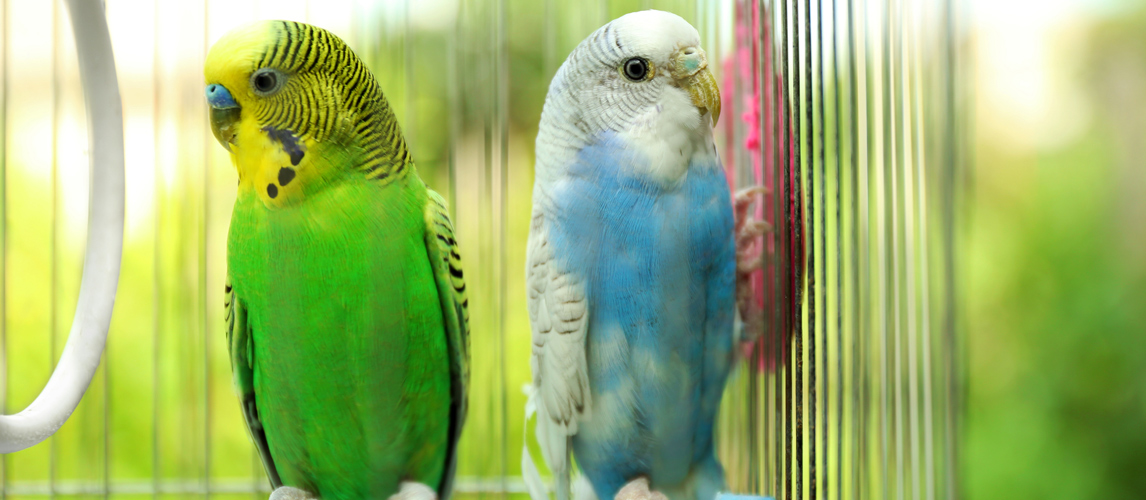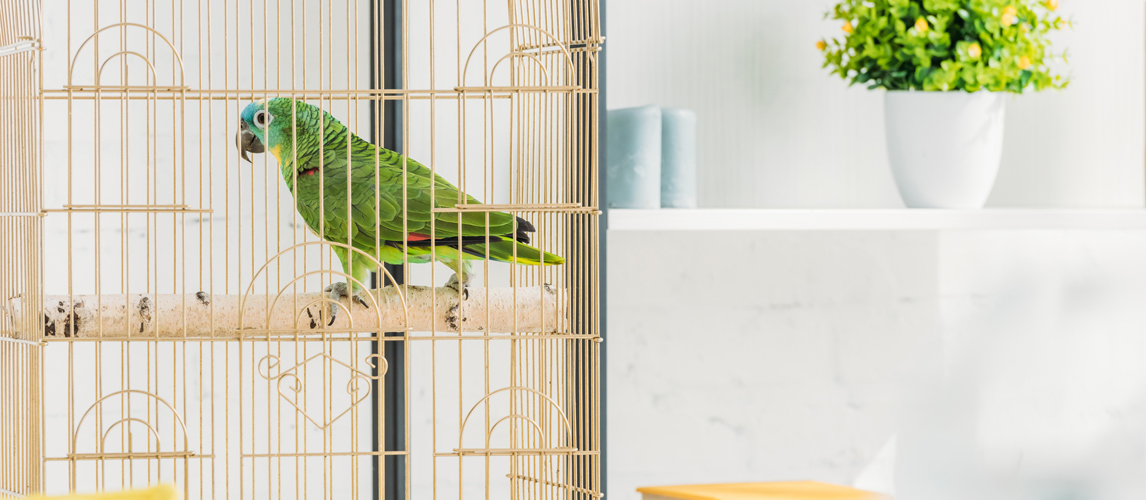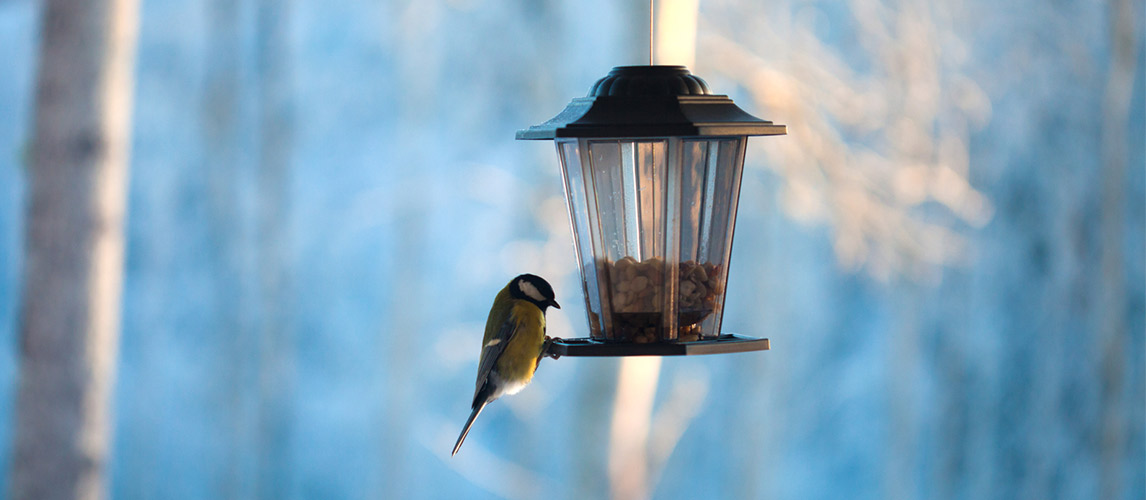Budgerigars or, as they are more commonly known, Budgies are one of the smallest and perhaps sweetest of the parrot species. Their nature and relative ease of care make them a popular pet; possibly the third most popular pet in the world after dogs and cats. However, like all animals, you mustn’t underestimate the time, cost and attention needed to provide for a Budgie Bird. To make sure you are the best pet parent you can be, you need to make sure you learn everything you can about the newest member of your family, so here is our helpful list of everything you need to know about Budgies.
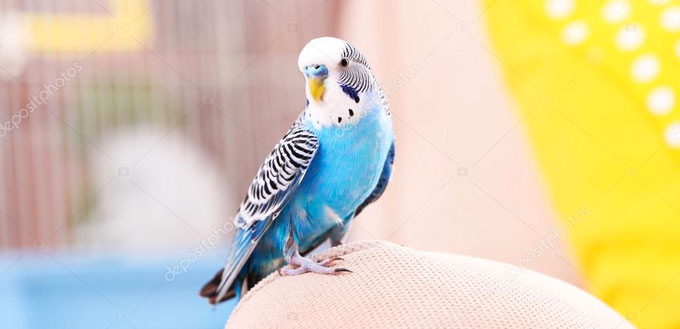
What is a Budgerigar
Budgies are a type of parakeet that are particularly small and, in the wold, naturally green. While parakeets come in many different sizes, shapes, and colors, budgies tend to come in two breeds – the original breed that hails from Australia and the English breed that was bred for domestic life. Generally, the key differences between these types include:
- Size, as English budgies are a couple of inches longer
- Proportion, as English budgies have larger heads
- Feathers, which are puffier around the head in the English breed
- Color variety, as all wild budgies are green so other colors are usually the product of generations of breeding.
It is a common misconception that all parrots speak. The truth is that many breeds of parrot do not have the capability and even within those that do, it is down to the personality of the individual parrot. Budgies, however, are a potentially talkative breed, which is another reason they are such an attractive pet. Some believe that budgies are better at mastering human speech than Macaws and Cockatoos. Even if this true, you must be aware that many budgies still don’t develop this skill, so don’t be disappointed if your budgie doesn’t chat with you.
If you are considering getting a bird or parrot or any type, you must also make sure that you plan for the future. Many parrots live for decades and often even outlive their owners, causing issues with care. This is another key reason Budgies are the most popular parrot pet, on average they usually live about 10 years, which, while still a serious commitment that should be carefully considered, is a little more manageable than 70 or 80 years.
What Does a Budgie Need in Their Home
First thing’s first, your Budgie needs somewhere to live. Although Budgies can be considered among the easiest birds to care for, they require a lot of equipment to provide for them and to keep them happy. The best Budgie habitat will have:
- A cage
- A bath
- A few toys
- A few perches
- A water dispenser
Choosing the cage is a very important step and there is a lot to consider. First of all, it has to be big. Your budgie must be able to stretch it’s wings and may even want to fly from one end to the other a little bit. This means the absolute smallest cage you should buy for one Budgie is about 20 x 25 x 32 inches. This increases if your Budgie is particularly large or is sharing with a friend. Other important factors to consider include:
- Make sure the cage is longer than it is tall to ensure that your Budgie can fly because they fly horizontally, rather than vertically, from perch to perch.
- Circular cages may look good, but they can create anxiety in birds that want corners to hide in. They are also usually too small.
- Toys and perches are necessary for your bird to entertain themselves, but you can have too much of a good thing. Make sure there is still sufficient space to fly once all the furnishing is complete. Two to three toys should be enough.
- Ease of access. It is great if your Budgie Bird is happy, but you also need to be happy. You want to make sure your hand and cleaning equipment can all easily fit inside it, there isn’t anywhere for dirt to collect and hide, and that you can pick it up and move it when you need to.
- Keep your cage somewhere warm, but where there is not going to be much temperature change. Your bird also needs plenty of indirect natural sunlight, and will enjoy being in a social room. Direct sunlight, drafts, heaters, and other causes of temperature fluctuation can be fatal.
Related Posts: Best Bird Cages and Best Bird Cage Covers
You also need to put a similar level of care and attention into anything you put in their cage, from water bottles to toys. Plastic is good for hygiene, which makes it best for baths, food and drinking water, but natural materials are ideal for perching and toys. Natural materials must be safe for your bird. Prunus trees and Oak, for example, may be damaging due to cyanogenic glycosides and tannins, while eucalyptus is recommended.
Related Post: Best Bird Toys
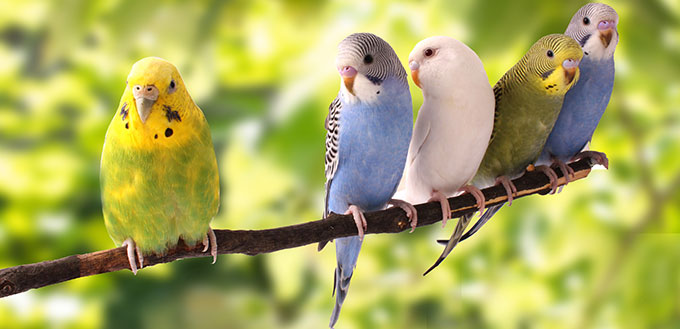
What Should You Feed Your Budgie Bird
Feeding a Budgie doesn’t have to be complicated, even though they are such an exotic bird. However, you do need to do your research because you may have some misconceptions about their diet. Many people believe that Budgies require a diet primarily made of seeds, perhaps with some other treats thrown in. This is quite the opposite. Seeds are actually not very nutritious for Budgies and should be considered treats themselves.
Instead of a seed-based diet, Budgies need a diet of pellets, fruit and vegetables. Variety is key to ensuring they receive all the balance of nutrients that they need. Pellets can be bought commercially and are made of a blend of vegetables, grains, seeds, fruits, minerals, vitamins and other nutrients. They should make up 70% of your bird’s diet, with the remaining 30% being a variety of fruit, vegetables and, occasionally, protein sources like meat and cooked egg.
Seeds aren’t the only foods that should be considered treats. Fruit, while beloved by Budgies, should be used in moderation due to its high sugar content which can cause obesity. There are also some foods that need to be avoided entirely and these include:
- Alcohol
- Caffeine
- Avocado
- Chocolate
- Uncooked beans and legumes
It is always a good idea to seek professional advice before offering any food to your Budgie that you are unsure of. You may also want to seek advice if you are thinking of changing your bird’s diet because Budgies can be fussy and may not try new foods that are presented to them, even if it will mean that they could starve.
Check out some of the best bird feeders that could help you feed your pet bird.
What are Budgie’s Personalities Like
An important, but sometimes overlooked, aspect of getting a new pet is their personality. Your animals must fit with your family’s lifestyle and your own personality, whether that be calm, friendly, energetic, or intelligent. After all, a solitary cat that hates to be touched will not fulfil the needs of a family with lots of children who love to cuddle.
The good news is that Budgies make great pets for all sorts of circumstances. They do well both with those living alone who want some company and large families because they are very social animals who will enjoy the hustle and bustle of busy family life just a much as they will enjoy plenty of one-on-one play time. However, you must be prepared to commit to socializing with your Budgie. If you have a busy lifestyle that keeps you away from the home, you may not be able to care for them.
You must also not mistake their love of socializing for an outgoing and confident personality. They love spending time with you because they find it reassuring. Generally, they are usually quite timid, gentle and affectionate. This can make them a bad addition to a family with a lot of predatory pets. It is possible to design your home to keep your birds safe from both physical harm and the negative effects of fear, but you must be prepared to do everything you can. Similarly, unsupervised young children and Budgies are not a good mix.
You also cannot assume that your Budgie is going to love you from the very first day. Like all animals, it takes time to build up the bonds of trust and love, but it will definitely be worth it as they bond very closely to their owners and are very affectionate. The best way to bond is to chat to them every day and play with them. Don’t touch them if they don’t appear comfortable with it, let them come to you. It may take a few weeks for this to happen, but once they do, they will love it and want to be handled and played with all the time.
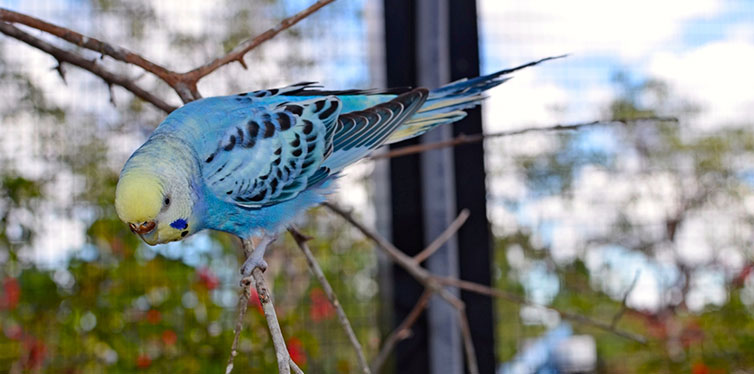
How Do You Care For A Budgie
You need to provide a bath for your Budgie because they are very clean birds that are likely to want to bathe every day. There are plenty of other grooming and cleaning advice that you need to follow if you want to give the best care for your Budgies. This includes:
- Trimming their toenails once every two months
- Providing fresh water at least every day
- Removing droppings, old food, and other debris every day
- Cleaning their cage thoroughly every week with bird safe products
- Covering their cage to provide darkness when it is time to sleep
You may also want to let your Budgie loose to fly around the room. This is great exercise for them and will do a lot for their happiness. However, you should only do this if you can ensure a safe environment for them. Other animals and young children are an obvious danger, but there are other dangers that you might not necessarily think about. Ceiling fans and other moving objects, unsanctioned food, and cooking equipment are all hazardous, and you must cover up any mirrors and windows to avoid them getting confused and crashing into them.
Are There Any Common Budgie Health Concerns
All animals have specific health problems that they are particularly prone to, and Budgerigars are no different. Many are avoidable with a bit of Budgie preventative health care, so it is a good idea to understand these health issues now, rather than later.
First of all, as we’ve already mentioned, one of the most common issues that occur with Budgies is a poor diet, particularly one that is too rich in seeds. Seeds have very little nutritional value and a bird that has a seed diet can find themselves suffering from deficiencies in calcium, vitamin A and vitamin D. Calcium is a particularly dangerous deficiency as it will affect the bones of your Budgie. Female Budgies also need calcium to lay healthy eggs as the shell of the egg is made of calcium.
Another danger is the giardia parasite. Budgerigars are known to be particularly susceptible to this parasite, which is transferred to them through their water. It can infect a host through either drinking or bathing water, and will cause them to scratch their legs, pull their feathers and shriek. Luckily, the giardia parasite is easily treatable through medication and is also quite preventable. Make sure the water you give to your bird is as uncontaminated as possible. You can do this by changing the water regularly and by using a water dispenser that prevents the water from coming into contact with droppings and other contaminants.
Tumors are also a common risk with birds. They are prone to all sorts of lymphomas, lipomas, and fibromas, which can form on the wing. Although they can be benign or malignant, it is worth getting every unexpected bump investigated by a veterinarian. Being overweight can increase their chances of developing tumors. Ultimately, a tumor itself is not always something to seriously worry about, but you must get them checked out as early as possible to ensure early treatment.
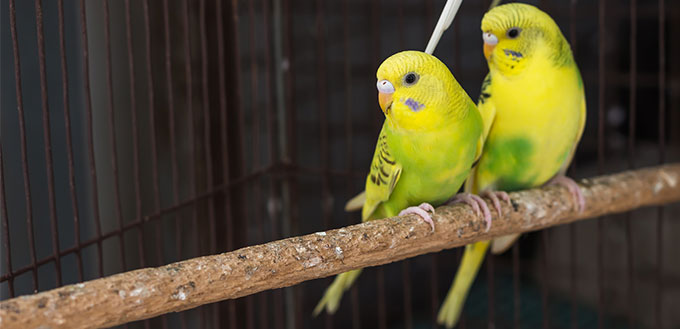
Where Can You Buy a Budgie Bird
As you probably expect, you can usually buy a Budgie from your local pet store. They are fairly common due to the demand caused by their popularity. However, you may want to research other places you can source your new Budgie Bird from, particularly if you suspect that your local store sources their birds from bird mills.
Parrot rescues and shelters will have Budgies that need good homes, and they may be cheaper and offer a better service for providing medical care and treatment in advance of your adoption, such as parasite checks and testing for common illnesses.
Source:
- Rick Axelson, DVM, Budgies – Feeding, VCA Hospitals



